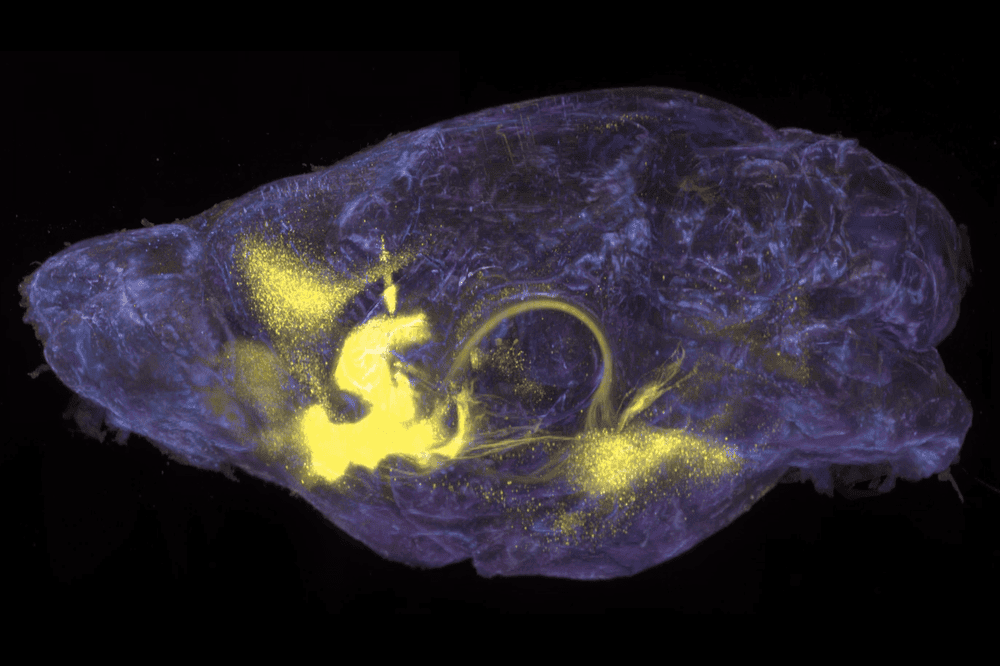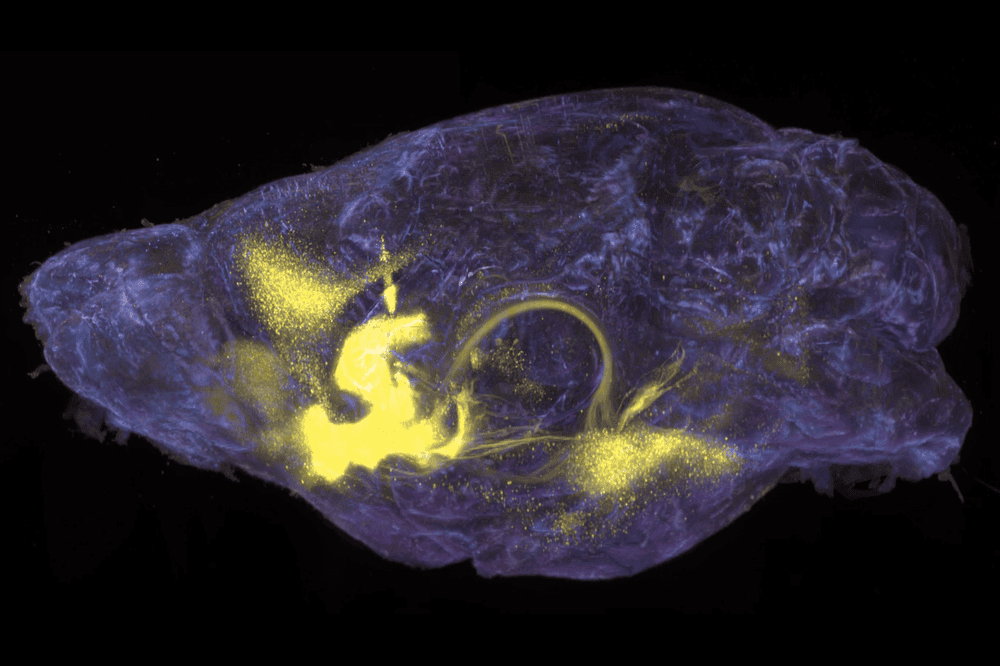
Scientists at Rockefeller University and the Icahn School of Medicine at Mount Sinai have made a breakthrough in understanding how addictive drugs like cocaine can override the brain’s natural reward systems, compelling individuals to forsake basic needs such as food and water.
This finding relies on a neural pathway that typically responds to natural rewards but is exploited by addictive substances. With this understanding, researchers hope to develop treatments to counteract brain hijacking. These treatments could help users reconnect with their natural senses or potentially make drugs of abuse unpleasant, and therefore less likely to fuel the cycle of addiction.
“We’ve known for decades that natural rewards, like food, and drugs can activate the same brain region,” says Rockefeller’s Jeffrey F. Friedman. “But what we’ve just learned is that they impact neural activity in strikingly different ways. One of the big takeaways here is that addictive drugs have pathologic effects on these neural pathways, that’s distinct from, say, the physiologic response to eating a meal when you are hungry or drinking a glass of water when you are thirsty.”
Accessing the Brain’s Reward Circuitry
As drug dependence deepens, individuals often progress through stages where the consumption of drugs increasingly overshadows everyday responsibilities and basic self-care. Initially, drug use might seem manageable, but it can gradually lead to a relentless compulsion, pushing aside essentials such as eating, sleeping, and maintaining personal hygiene.
In the most severe stages, the addiction becomes all-consuming, with individuals prioritizing drug use over all other aspects of life, including work, relationships, and health, leading to significant personal and societal consequences.
The team led by Bowen Tan, a researcher at the Rockefeller Howard Hughes Medical Institute, wanted to learn more about what happens inside the brains of people suffering from drug addiction. They knew from previous work that the best place to start looking is inside the nucleus accumbens.
The nucleus accumbens (NAc) is a key structure within the brain’s reward system. It’s responsible for processing and reinforcing the feelings of pleasure and satisfaction that encourage us to repeat behaviors that are vital for survival or are generally good for humans, such as eating, drinking water, and social bonding. This area of the brain responds robustly to rewarding stimuli by releasing dopamine, a neurotransmitter associated with pleasure and motivation.
Cocaine directly influences the nucleus accumbens by increasing dopamine levels, thereby intensifying feelings of euphoria and pleasure. This surge of dopamine is much stronger and more sudden than the typical experience with natural rewards, leading to a disproportionately high reward sensation that can quickly lead to the reinforcement of drug-taking behavior. Over time, this can result in neuroplastic changes in the nucleus accumbens, altering its response to both drug-related and natural rewards.
“The NAc is a key node where the underlying dopaminoceptive neurons direct and refine animals’ behaviors towards their goals,” says Tan.
“What we hadn’t been able to understand is how repeated exposure to drugs corrupts these neurons, resulting in escalated drug-seeking behaviors and a shift away from healthy goals.”
Changing the Reward System
Previously, Tan and colleagues found that a certain population of neurons in the NAc ‘light up’ in response to hunger or thirst. In their new study, the scientists have discovered that this same neural cluster activates in response to cocaine and morphine. When mice were fed these drugs repeatedly, the behavior of their neural cells changed over time. This affected the rodents’ motivation to seek food or water.
Interestingly, a single gene called Rheb, plays a vital role in controlling the reward system in the NAc. When scientists turned off this gene using CRISPR, the laboratory mice displayed normal seeking of nourishment even when they were under the influence of cocaine.
Although the study shows promising results, it is based solely on reactions in mice. The connection to human addiction requires further investigation. However, the treatment implications are significant. Targeting the Rheb gene in future therapies might help prevent addiction without suppressing other natural desires, like eating and drinking.
The team aims to delve deeper into the brain’s circuitry and chemical interactions that underlie addiction. Understanding how other brain regions associated with memory and emotion interact with the NAc could provide more insight into how addiction affects behavior and how it could potentially be reduced, aiding in preventing relapses even long after drug cessation.
“A major part of our ongoing research will be directed to defining how the complex flow of information is incorporated into value computations in brain cells and how that crucial mechanism enables drugs to overtake the processing of natural rewards, leading to addiction,” Nestler says.
The new findings were published in the journal Science.









